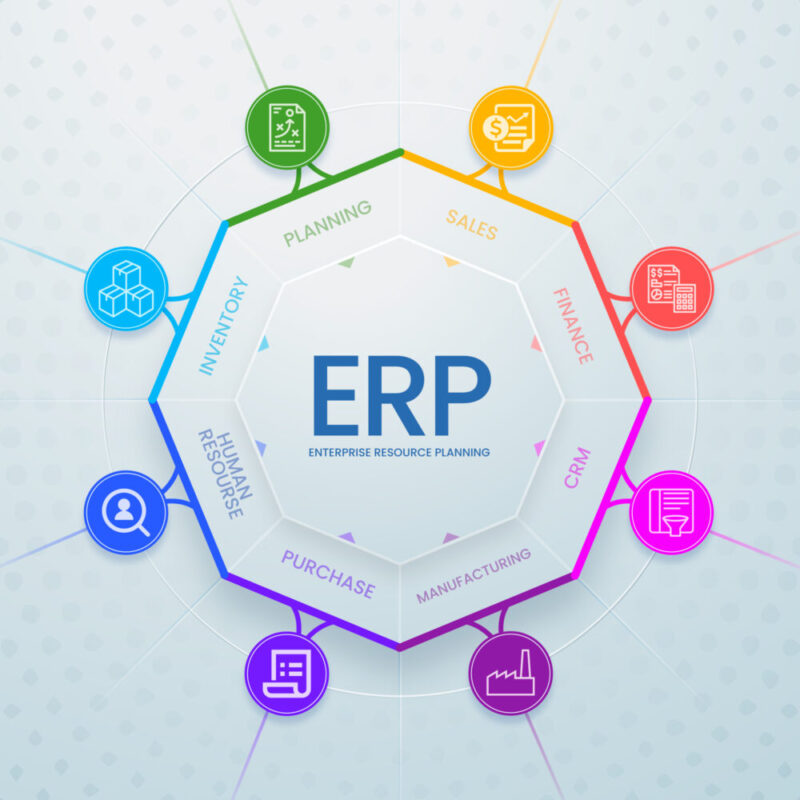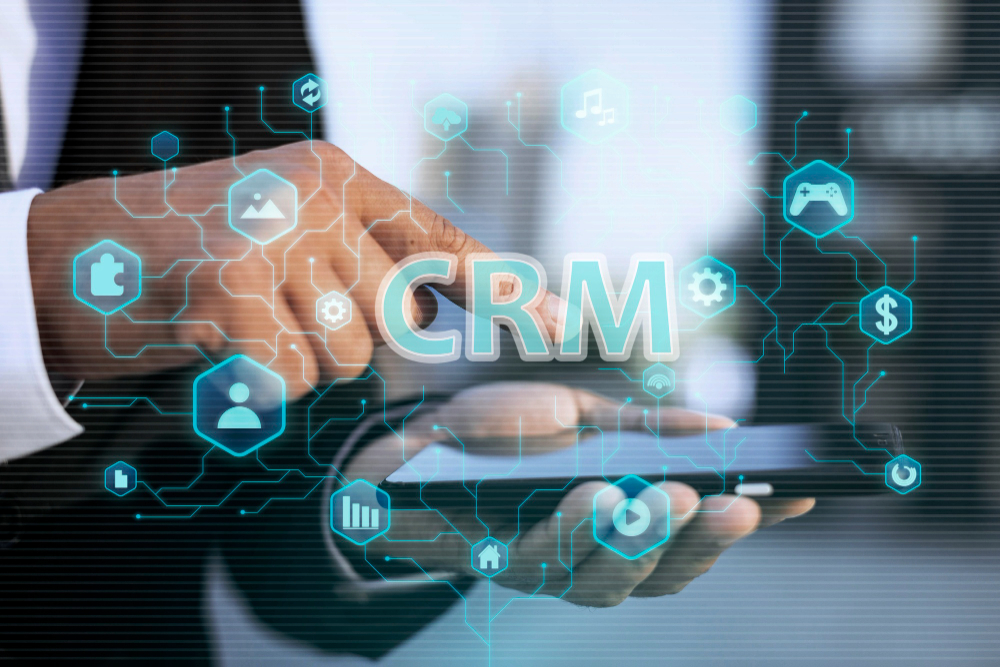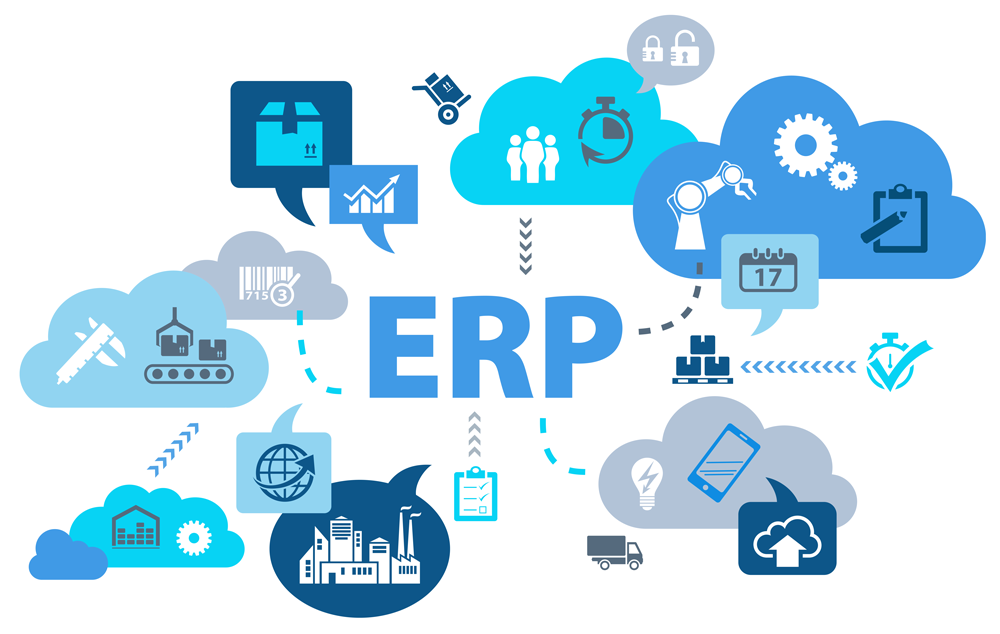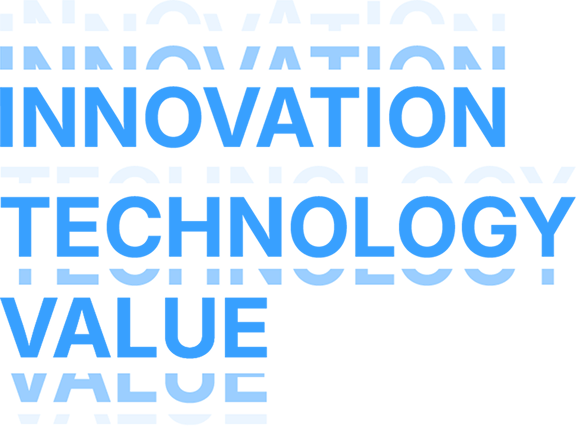SAP ERP is a powerful solution that enables businesses to unify their core functions into one integrated system. In this blog, we’ll explore how SAP ERP can streamline everything from finance to supply chain management, helping your organization reduce costs, improve productivity, and make informed decisions with real-time data. Discover how SAP ERP can be the key to driving your business forward and achieving long-term success.
What is SAP ERP?
SAP is a global IT company based in Germany, recognized as a leader in the ERP software industry. The company, SAP (Systems, Applications, and Products), specializes in developing solutions that help businesses manage their operations and customer relationships.
SAP ERP is a comprehensive enterprise resource planning software developed by SAP. It provides a wide range of tools to help businesses manage core processes such as financial management, human resources, and customer relationships.

What makes SAP ERP powerful is its ability to integrate various business functions into a single system. This allows companies to streamline their operations by enabling different departments to access and share data in real-time, fostering better collaboration and efficiency within the organization.
In 2014, SAP partnered with IBM, a major American IT company, to introduce cloud-based products. The shift towards using the cloud for data storage has become a significant trend for ERP software providers, allowing businesses to not only cut costs but also access their systems remotely through an internet connection. This innovation brings greater flexibility and efficiency to companies worldwide.
Key Features of SAP ERP Software
SAP ERP software is integrated with a variety of tools designed to assist in managing a company’s business activities. It offers modules that cover financial accounting, sales management, warehouse management, equipment maintenance, and more.
SAP ERP Central Component (SAP ECC)
SAP ERP Central Component (SAP ECC) is an on-premises enterprise resource planning (ERP) system designed to integrate various digital processes within a business in real-time. By linking data from different business areas, SAP ECC ensures that updates in one area, such as sales, automatically reflect in related areas, such as inventory management.
SAP ECC is structured with a combination of functional and technical components. It features 10 core functional modules and 2 technical modules, each tailored to manage specific business processes. Here’s a look at the key functional modules within SAP ECC and their respective roles:
- SAP Finance and SAP Controlling (SAP FICO): The FI module handles financial accounting and reporting, while the CO module focuses on cost planning and monitoring. Together, these modules enable organizations to consolidate financial data, manage transaction histories, and perform detailed financial analysis in a unified system.
- Sales and Distribution (SD): The SD module oversees the complete sales and distribution process. It manages activities such as selling products or services directly to customers or through distribution channels, handles customer returns, and processes billing and credit issuance. This module ensures a smooth flow from sales orders to deliveries and invoicing.
- Materials Management (MM): The MM module handles procurement and inventory management. It manages the acquisition of materials and services from suppliers, tracks inventory levels, and oversees goods issuance, receipts, and transfers between plants or storage locations. MM ensures efficient material management and accurate inventory tracking.
- Production Planning (PP): PP aligns production with demand and integrates manufacturing processes with sales and distribution. This module is crucial for managing various types of manufacturing, including discrete, process, or repetitive, or a combination of these. It helps optimize production schedules and manage resources effectively.
- Human Capital Management (HCM): HCM covers all aspects of human resources management, including payroll, time management (attendance and leave), career development, travel, and workplace safety. The module’s submodules can be implemented based on specific organizational needs to streamline HR processes and manage employee data efficiently.
SAP Customer Relationship Management (SAP CRM)

With one database and unified processes, CRM connects all customer-facing activities. But it also offers specific benefits.
- Marketing: Helps in planning and executing marketing campaigns, analyzing market trends, and segmenting customers.
- Sales: Manages the sales process from lead generation to closing deals, including tracking sales performance and customer orders.
- Services: Provides tools for customer service and support, ensuring efficient handling of customer queries and issues.
- E-commerce: Providing an omnichannel commerce experience across mobile, online, and brick-and-mortar buying and selling, recognizing customers across channels, and giving special love to high-value customers.
SAP CRM can also be used for enterprise resource planning and management. Its robust reporting and analytics features enable administrators to gain insights into customer behavior, helping businesses make data-driven decisions and improve customer relationships.
SAP Supplier Relationship Management (SAP SRM)
The primary goal of the SAP SRM module is to optimize business relationships with current and potential suppliers. Closely integrating with a company’s purchasing processes helps plan and manage these relationships effectively.
- Contract and Supplier Management: Centralizes contract data, making overseeing agreements easier and ensuring compliance with contractual terms.
- Supplier Selection: provides tools to evaluate and choose suppliers based on various criteria, ensuring that the most suitable partners are chosen.
- Supplier Information Management: Keeps track of supplier details, performance, and compliance, which helps in making informed decisions.
- Order and Purchase Orders: Streamlines order management, from order creation to fulfillment, ensuring efficient procurement operations.
- Invoice Creation: Automates the creation of invoices for efficient financial operations.
SAP Supply Chain Management (SAP SCM)
SAP SCM is designed to manage the entire supply chain from suppliers to customers. It offers a range of functionalities to ensure efficient and effective supply chain operations:
- Warehouse Management: Optimizes inventory and warehouse operations, improving the efficiency of storage and inventory management.
- Transportation Management: Manages logistics and transportation activities, including planning, execution, and monitoring of shipments.
- Logistics Process Tracking: Provides tools for monitoring and tracking logistics processes, offering enhanced visibility and control over supply chain activities.
- Supplier Collaboration: Facilitates effective collaboration with suppliers, enhancing coordination and communication.
- Supply Chain Planning and Optimization: Supports demand forecasting, production planning, and inventory management, so that supply chain activities are aligned with overall business goals.
SAP Product Lifecycle Management (SAP PLM)
SAP Product Lifecycle Management (SAP PLM) is designed to oversee the complete lifecycle of a product, from its initial concept through to its final delivery to customers. This module ensures effective management throughout every phase of the product’s life.
- Enhancements: Provides tools to manage and implement changes, ensuring that products evolve in response to market needs and technological advancements.
- Equipment Management: Manages equipment related to product development and production.
- Document Management: Organizes and manages product-related documentation.
Benefits of SAP ERP
SAP ERP systems deliver significant advantages to businesses, helping to streamline operations and improve efficiency across various functions.

Source: terillium
Cost Optimization
SAP ERP software reduces management and operational costs by providing precise, real-time data. This helps businesses manage their production processes effectively, minimizing delays with accurate information. Consequently, management can make timely decisions to boost performance and drive overall success.
Enhanced Data Management
With SAP ERP, businesses can manage performance metrics with greater precision. The system ensures that all data is meticulously handled, allowing administrators to easily see the big picture and plan for the future. Automation of management and reporting processes means employees can access and view shared data without relying on manual documents, leading to quicker and more informed decision-making.
Elimination of Data Duplication and Improved Transparency
SAP ERP centralizes all business data in a single database, completely eliminating data duplication. The system automatically generates reports, improving data quality and providing a clearer view of operations. By monitoring and tracking activities such as inventory, orders, invoicing, and shipping, SAP ERP enhances business transparency and helps managers better understand performance across all processes.
Scalability
For organizations anticipating future growth, standard software solutions may not be sufficient. SAP ERP is designed to meet fundamental market requirements from the start and can be scaled as needed. Initially, businesses can implement core features, with the flexibility to expand and add more functionalities as they grow, ensuring that the system evolves alongside the organization.
Robust Data Security
SAP ERP systems significantly enhance data security with comprehensive protection measures. The software includes integrated security and firewall systems to safeguard information. Additionally, it allows for customizable permission settings, ensuring that access to sensitive data is restricted based on employee roles and needs.
VTI’s SAP Services: Shaping the Future Together
VTI, with extensive experience providing solutions to clients in Vietnam, Japan, Korea, and Singapore, is a leading outsourcing company. Our SAP team offers comprehensive, one-stop services that cover everything from consulting and application development to maintenance and migration. We take pride in our expertise with SAP ERP modules, including partnerships with platforms like Odoo.
Why Choose VTI Services?
- Abundant SAP Talent: We have a rich pool of SAP experts, supported by continuous training programs to ensure that we consistently provide skilled professionals for your needs.
- Industry Expertise: Leveraging our extensive experience and know-how, we understand the fundamental operations across various industries. This enables us to offer optimal, tailored services through a single point of contact.
- Skilled Bridge SE Team: Our Bridge SE team is proficient in multiple languages, including English, Japanese, and Korean, and possesses strong IT knowledge. This combination ensures successful project execution and smooth communication.
![[FREE EBOOK] Strategic Vietnam IT Outsourcing: Optimizing Cost and Workforce Efficiency](https://vti.com.vn/wp-content/uploads/2023/08/cover-mockup_ebook-it-outsourcing-20230331111004-ynxdn-1.png)





